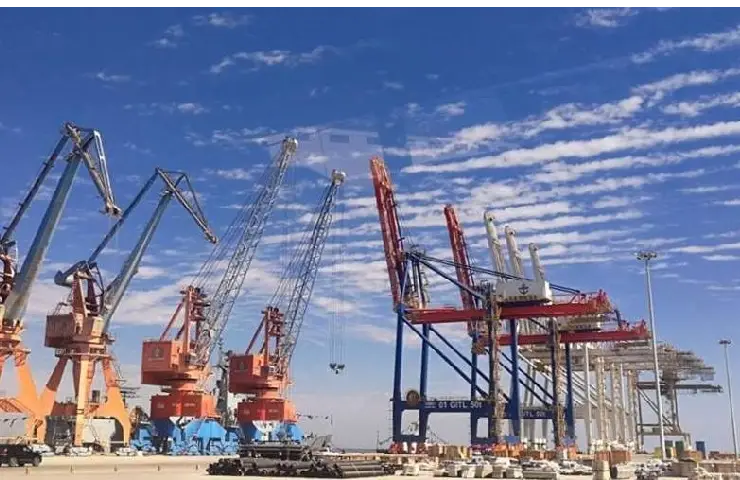Not all is well with the China Pakistan Economic Corridor (CPEC).
The new Pakistani administration in Islamabad is confronting the harsh realities of China's $64 billion lodestar project in Pakistan which is piling up Chinese debt and denting its perception.
In the latest development, Senator Mushahid Hussain—the chairman of the Senate Defence Committee, told Pakistani newspaper Dawn that China is losing confidence in Pakistan over security issues. "The Chinese confidence in Pakistan’s security system’s ability to protect their citizens and their projects is seriously shaken”, Dawn quoted Hussain as saying on Friday.
100’s of Chinese workers working on CPEC projects leaving en masse. Pakistan is going down faster than ever. #MarchAgainstImportedGovt
#امپورٹڈ__حکومت__نامنظور pic.twitter.com/DUaC5YEfyK— IMRAN KHAN (@ImranKhandotPTI) April 30, 2022
He added that the Karachi suicide bombing by a Baloch woman bomber: "has caused serious concern and understandable indignation in China. More so, the pattern of attacks is so recurring and it’s clear that Pakistani promises of ‘foolproof security’ are mere words, not matched by countermeasures on the ground".
Repeated attacks on Chinese nationals has created a global perception that Pakistan is not able to protect Chinese investments and citizens on its own territory. Immediately after the Karachi attack that killed three Chinese academicians of the Confucius Institute, international media organisations carried news that Chinese nationals are leaving Pakistan due to fear.
The Karachi attack was the third such attack on Chinese nationals in Pakistan in just one year. In one of the major attacks, at least nine Chinese naitonals were killed when a car laden with explosives rammed a bus carrying Chinese nationals working on the Dasu hydropower project last June.
Even though Pakistan and China claim to have an iron-clad friendship, deadly attacks on Chinese interests including the CPEC have caused fissures in their relations.
For Beijing, it is not just the security concerns that are many other vexing issues. Pakistan's precarious financial situation also is a big worry. The country has not paid Chinese power producers billions of rupees for payments related to power generation and transmission for the last many years.
Namrata Hasija, Research Associate at the Centre for China Analysis and Strategy (CCAS), told India Narrative that there are questions about the economic viability of the CPEC.
Hasija said: "The bulk of financing for the CPEC has come through loan-based financing. Though the loans are given to individual construction companies involved with the projects, there are significant risks to the government. As the power projects are under sovereign guarantees, it is the Pakistani government which is responsible if the companies fail to meet their debt obligations. Pakistan’s private and public debt has touched a staggering 75 per cent of its GDP".
Quoting the International Monetary Fund (IMF), she says that Pakistan has to pay $6.7 billion in commercial loans to China over the next three years beginning June 2022.
She also says that although China will continue to create safe places for its CPEC workers in Pakistan, there will be a continual threat of violence against them. One of the reasons she cites is that orthodox Muslims residing in rural Pakistan may not "easily accept the presence of thousands of Chinese workers and their customs".















